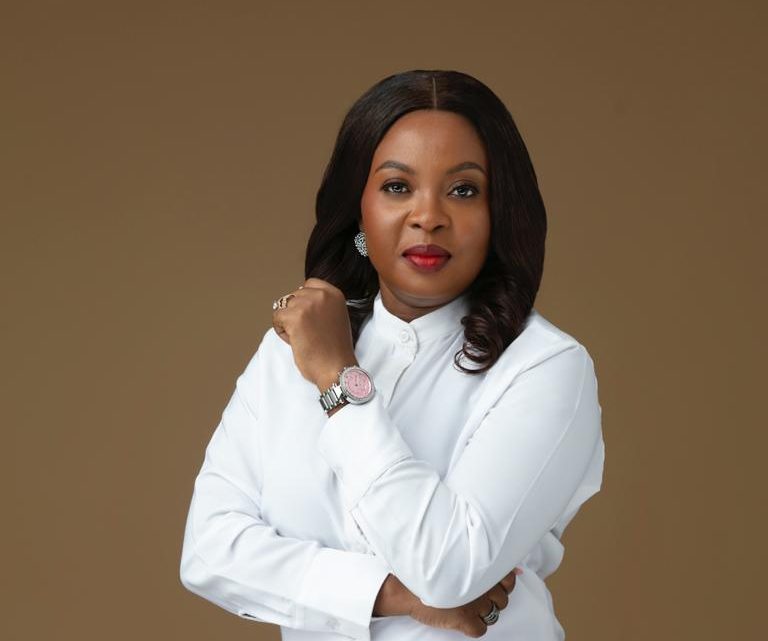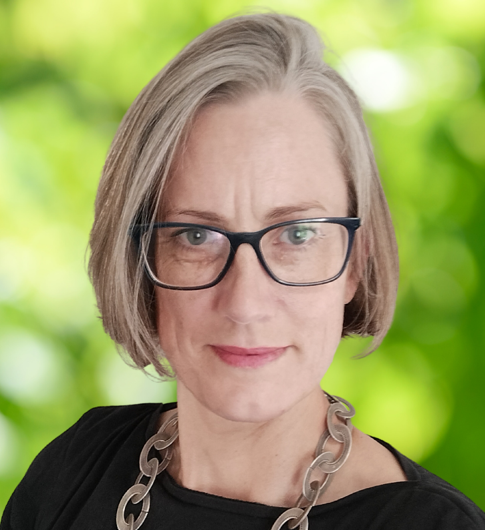Our Comms Spotlight for this week is another GLG Comms PR Power List honoree. Meet Mabel Adeteye, Head, Brand & Marketing Communications at Wema Bank. Mabel is also a member of the Forbes Communications Council. At the start of her career, she had to make a choice between Medicine and Communications; but her passion for Communications was undeniable. In her interview with us, Mabel shares some valuable insights to help professionals build a stellar career.
What inspired you to begin your career in Communications?
From a young age, I was drawn to two fields – Medicine and Communication. However, I quickly realised that a career in Medicine wasn’t for me due to my sensitivity to health issues and a phobia for blood. This made it clear that my path lay elsewhere.
My passion for Communication, on the other hand, was undeniable. I was drawn to the idea of researching, gathering information, and sharing it with others. I remember back in school, when we were asked to choose our core focus in Mass Communication, I chose PR and Advertising. My interest translated into practical experiences, such as writing copy, press releases, and organising events while still in school. During my NYSC, I further sharpened these skills by joining the OBS in Orientation Camp and the Editorial Team afterward, where I contributed to publishing magazines and writing scripts for radio.
These experiences solidified my desire to pursue a career in Communication. My journey has consistently revolved around various aspects of Communication—across media, content creation, PR agencies, digital marketing, crisis communication, events, and more. I’d always known this was the path for me, and it has led me where I am today. I am grateful for having the privilege to have worked and managed communications for various industries: Technology, Media, Aviation, Telecommunications, Automobile, Banking, Brewery, E-commerce, FMCG, Education, Healthcare, and Hospitality. The experience has shaped me and made me who I am today.

Tell us about your role as Head, Brand & Marketing Communications at Wema Bank.
As the Head of Brands and Marketing, my role encompasses all aspects of Communication for the bank, including Brand Communication, Corporate Communication, Crisis Management, Media Relations, Digital Media Engagement and Marketing, Sponsorships, Events, Internal and External Communications, top leadership communication, and Stakeholder Management. Essentially, I manage the bank’s Communication strategy, both internally and externally.
What excites me about this role is that it aligns perfectly with my passion for Communication. I genuinely love what I do. At Wema Bank, my role is particularly fulfilling because it allows me to collaborate with all areas of the business, engaging with colleagues at every level, from senior management to entry-level employees. I find it rewarding to work with such a diverse group and to amplify the great work the bank is doing.
What are some of your highlights from your career journey?
There are several highlights but let’s see if I can touch on some. To start with, the key highlight of my career has been the opportunity to have worked across every aspect of integrated Marketing Communication, both on the client side, as a consultant, and as an agency rep managing both the public and private sectors.
This diverse experience has been amazing, as it has allowed me to implement all my learnings in my current role, applying those insights to my work every day and improving on them.
Let me quickly reference two to three highlights:
The first would be handling international briefs and achieving success with them. I remember when I managed the British Airways account and launched the first-ever “British Airways Leaders of Tomorrow” campaign both here in Nigeria and the United Kingdom. It was an end-to-end campaign that earned both local and international awareness, engagement and feedback, which was major for me.
Another milestone was working on the launch of the “Share a Coke” campaign in the Nigeria market; not to forget crafting and implementing the end-to-end PR and Digital Marketing strategy that drove another major revenue source at my previous employment.
In my current position, I am proud of the various achievements recorded both internally and externally, which have only been possible because of the support the business gives and how the management creates an enabling environment for everyone to thrive, irrespective of your level.
These experiences have not only shaped my career but have also reinforced my passion for communication and its impact, which I find fulfilling.
How can Communications Professionals become agents of change and impact in their spheres of influence?
It is crucial for professionals in this field to be deeply grounded in their craft and always be on the lookout for innovative approaches to communication. To me, the impact comes from being rich in learning—not in the financial sense only, but in terms of knowledge and understanding. It is essential to fully grasp your field as a professional, to understand the environment you’re operating in, and to have a comprehensive knowledge of the profession.
In the early days of Communication, the focus was primarily on traditional methods and a lot of the Integrated Marketing Communication tactics that we deploy now weren’t available then. To truly become an agent of change in this industry, you need to be strategic. Strategic communication and tailored channels are key. We do not operate in a one-size-fits-all environment anymore.
Leadership is a very important skill for professionals to have. How can Comms professionals develop their leadership skills?
It’s essential to keep learning continuously. Sometimes you may feel that you have outgrown certain tasks and responsibilities, but it is important to remember that we engage with audiences from different generations, ages, behaviour, and interests. To stay relevant, you must constantly learn what your target market likes, wants, and how they behave. This involves regularly monitoring trends and behaviours, staying informed, and moving beyond traditional communication methods. The landscape of communication has evolved globally, and we need to adapt accordingly.
Additionally, it’s crucial to stay hands-on with the work. Sometimes when we advance in our careers, we distance ourselves from the day-to-day tasks, research and brainstorming sessions, especially with different generations which doesn’t help to sharpen our skills. In a nutshell, It’s about learning, engaging, and getting directly involved in the work—remaining connected to the job at every level.
Can you share some advice for young professionals who would like to build a career in Communications?
I always advise young professionals who are starting off their careers to begin on the agency side rather than the client side. Working in an agency offers a broader learning experience because you’re exposed to various aspects of communication and strategy. Unless you’re fortunate enough to land a position on the client side with substantial responsibilities, starting at an agency provides more comprehensive training.
If you’re unable to secure a job at an agency, consider interning with an agency even while you are working. If an internship isn’t feasible, volunteer with an agency, or a smaller organisation with less resources or manpower so that you can get your hands dirty on the job.
There are many opportunities to volunteer with smaller agencies or individuals running smaller operations. This hands-on experience might be overwhelming or tough, but it is a good training and Learning phase, from strategy, ideation, and implementation, rather than just outsourcing tasks to all the time or segmented teams.





